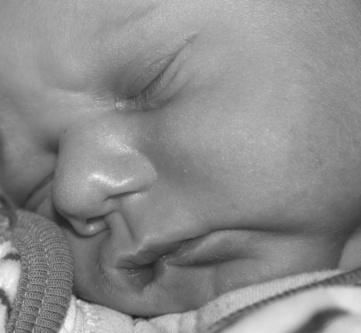Sleep is a basic human requirement. Without enough of it, it can be difficult to function and make it through the day. While the exact amount of time a 3-month-old baby sleeps can vary slightly from baby to baby, there is a normal amount of sleep that most 3-month-olds require to support healthy growth and development.
Sleep Requirements
On average, 3-month-old babies sleep about 13 hours per 24-hour period. For most 3-month-olds, this equates to 8 1/2 hours of nighttime sleeping and 4 1/2 hours of daytime sleep. Most 3-month-olds divide their daytime sleep between three to five naps.
Importance of Adequate Sleep
In addition to being generally happy and content, an adequate amount of sleep allows for proper brain maturation, body growth, learning and memory development. During sleep, the hormones responsible for physical development are released. When a baby fails to get enough sleep on a regular basis, it can lead to immune system dysfunction, stress, exhaustion and issues with health, growth and development.
Sleep Routines
Around 3 months of age, babies should begin to be on a fairly regular schedule. For 3-month-olds, their schedule should be based on the “eat, play, sleep” routine. Since most 3-month-olds can stay awake no longer than two hours at a time before becoming overtired, their first nap should occur between one and two hours after waking and eating. Being on a fairly consistent schedule can help your baby to develop her internal clock and that will signal to her when it’s time to fall asleep and wake up.
Preventing Sleep Problems
Allowing your 3-month-old baby to fall asleep on his own can help him develop the skills necessary to self-soothe. While you may enjoy rocking your baby to sleep, it can actually cause sleep problems. If your baby doesn’t learn to fall asleep without assistance, he won’t be able to put himself back to sleep without assistance. To avoid this potential problem, put your baby in his sleep space when he is drowsy but still awake and let him fall asleep on his own. Another issue with helping your baby to fall asleep is that if your baby falls asleep one way and then wakes up and things are different, he’s likely to be confused or frightened, which can result in difficulty getting back to sleep.
The Napping Myth
It’s a common thought among parents that if their baby sleeps too much during the day or too late in the afternoon he won’t sleep well at night. The opposite can actually be true. Keeping up a tired baby only creates an overtired baby. Overtired babies can be difficult to soothe; they can have a difficult time falling and staying asleep. If your baby is tired, let him sleep. He’ll be easier to put to bed at night if you do.





